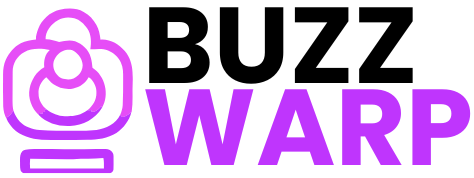Introduction
Debt can feel like a heavy weight, but managing it doesn’t have to mean giving up the things you love. Many people think paying off debt quickly requires drastic lifestyle changes, but with the right strategies, you can make significant progress while still enjoying life. This guide will show you how to balance debt repayment with maintaining your lifestyle.
Assessing Your Financial Situation
Calculating Total Debt
The first step to paying off debt is understanding how much you owe. List all your outstanding debts, including credit cards, student loans, and personal loans. Organize them by interest rates and minimum payments to identify which ones to tackle first.
Understanding Your Cash Flow
Take a close look at your income and expenses. Knowing exactly how much money comes in and where it goes helps you identify areas for adjustment. Track your monthly spending to find patterns and opportunities to save.
Setting Clear Financial Goals
Short-Term vs. Long-Term Goals
Focus on short-term wins, like paying off a small debt or reducing high-interest balances, while keeping an eye on long-term objectives such as becoming debt-free and building savings.
Establishing a Realistic Timeline
Break your repayment plan into manageable steps. For example, aim to pay off one credit card within six months or reduce your student loan balance by a set amount each year.
Exploring Debt Repayment Strategies
Snowball Method
This method involves paying off the smallest debts first. The quick wins boost motivation and create momentum for tackling larger debts.
Avalanche Method
With this approach, prioritize debts with the highest interest rates. While it might take longer to see progress, you’ll save money on interest in the long run.
Consolidating Debts
Consider combining multiple debts into one loan with a lower interest rate. Debt consolidation simplifies payments and can reduce the overall cost of repayment.
Negotiating Lower Interest Rates
Reach out to your lenders to discuss reducing your interest rates. Many creditors are open to negotiation, especially if you have a good payment history.
Budgeting Without Sacrificing Lifestyle
Identifying Non-Essential Spending
Examine your spending habits to pinpoint areas where you can cut back. For example, reducing dining out or opting for subscription services instead of cable TV can free up funds without major sacrifices.
Allocating Funds Wisely
Create a budget that balances debt repayment with enjoyment. Designate a portion of your income for leisure activities while ensuring you meet your financial goals.
Increasing Income Streams
Side Hustles
Take on part-time gigs like freelancing, tutoring, or ride-sharing. Even a few extra hours a week can significantly accelerate debt repayment.
Passive Income Ideas
Invest in opportunities that generate income without constant effort, such as dividend stocks, rental properties, or creating digital products.
Selling Unused Items
Clear out your home and sell items you no longer use. Platforms like eBay, Poshmark, and Facebook Marketplace can help you earn extra cash.
Staying Motivated During the Process
Tracking Progress
Use budgeting apps or spreadsheets to monitor your debt reduction. Seeing your progress can be a powerful motivator.
Celebrating Milestones
Reward yourself for hitting key milestones. Treat yourself to something small and meaningful to stay encouraged.
Avoiding Debt in the Future
Building an Emergency Fund
An emergency fund acts as a financial cushion, preventing the need to rely on credit in unexpected situations.
Smart Credit Usage
Use credit responsibly by keeping balances low and paying them off in full each month. Avoid unnecessary purchases that you can’t pay for immediately.
Conclusion
Paying off debt faster while maintaining your lifestyle is achievable with the right strategies. By assessing your finances, setting goals, and using smart repayment methods, you can take control of your debt without sacrificing the things you love. Stay consistent, and remember that every small step gets you closer to financial freedom.
FAQs
1. How can I pay off debt faster on a low income?
Focus on creating a strict budget, reducing non-essential expenses, and exploring side hustles or income-boosting opportunities.
2. Is it better to pay off small debts or high-interest debts first?
It depends on your preference. The snowball method focuses on small debts for motivation, while the avalanche method saves more on interest.
3. Can I maintain my lifestyle while paying off debt?
Yes, with careful budgeting and prioritization, you can balance debt repayment with enjoying life.
4. What are some effective ways to negotiate with creditors?
Contact them directly, explain your financial situation, and request lower interest rates or revised payment plans.
5. How do I prevent falling back into debt?
Build an emergency fund, use credit responsibly, and stick to a budget that aligns with your financial goals.

